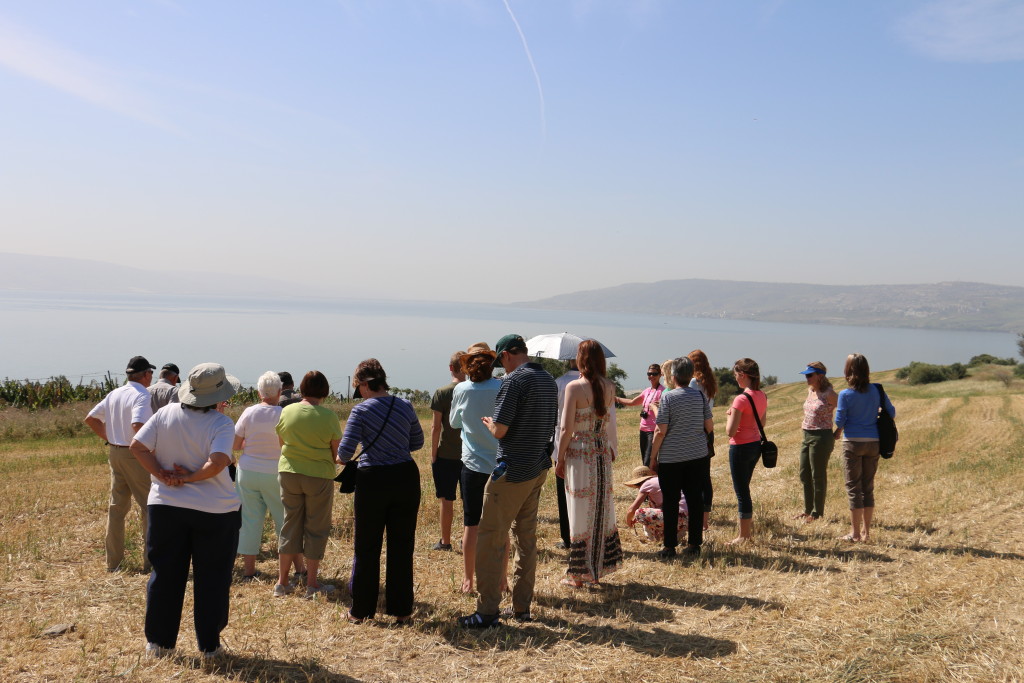March 17, 2016: Day 74 – John 6
March 17, 2016John 6 contains the Lord’s Supper. You may not have picked up on it. You will notice that at the Last Supper in John, and we aren’t even close to that yet, that Jesus does not distribute the bread and the cup like he does in all the other Gospels. Instead, he has the act of washing his disciples’ feet. Again, we are getting ahead of ourselves, except we really aren’t. In the other Gospels when Jesus takes the bread he blesses it and the word used is eucharisto in the Greek. There is another word for blessing in the Greek which is eulogo and that is used when Jesus blesses the children and lays out all of the the beatitudes with the blesseds that follow. Here in John 6 guess what word is used for vs.11 for “giving thanks” or some translations read “blessed”? In fact we find that same word in 23 when it describes Jesus giving thanks and then distributing the bread. It is the word eucharisto which is the same term used in the Last Supper. I have always seen this scene in John as the Gospel writer’s portrayal of the institution of the Lord’s Supper which is not relegated to the 12 disciples but rather is given to all who would come near. I find it equally compelling that the bread and the fish, especially in John, are given to Jesus by a young child. Jesus is able to use the elements that are provided to him by a child in order to institute something that will last for thousands of years. How can we ever say that we don’t have anything to offer to the Lord when we have this example of a young child offering something to Jesus that will stay in the annals of history for millennia?
The movement is pretty quick in the chapter as we go from the feeding of the large crowd (and you can see a crowd of FPCers in the picture above in a place that could have been similar to the one where Jesus fed the multitude) to Jesus going down to the shoreline which you see in the horizon in the picture above as he realizes that people really like him and are wanting to make him some sort of king. That really wasn’t part of his plans.
It is in these following verses where we have a very significant explanation of the Lord’s Supper. It is here where Jesus states: “Unless you eat the flesh of the Son of Man and drink his blood, you have no life in you.” This sounds very close to the Roman Catholic perspective that what happens at communion is that we eat the body and drink the blood of Jesus. We do not believe that the juice and the bread physically become the body and the blood. We believe that there is a real spiritual presence of Jesus during communion which is not present when communion is missing from the service. This is why John Calvin felt like we should take part in communion every single time that the word of God is preached. I have never served in a church where that has been done, primarily because I probably lack the courage to suggest or recommend it. But Calvin felt like it was a necessity and not just something we do for the sake of symbolism, but rather for the sake of transformation.
We can learn from Jesus who after he teaches about his body and his blood sees the departure of “many of his disciples turned back and no longer went about with him.” It was not a popular teaching. Jesus’ next step is to ask those remaining: “Do you also want to go away?” He didn’t want to keep any who felt in any way that they were being forced to stay. Jesus did not care about numbers, he cared about disciples. Even though I believe that if you make strong disciples then the numbers will increase, that simply did not happen with Jesus. We might want to rethink our approach on this matter.
